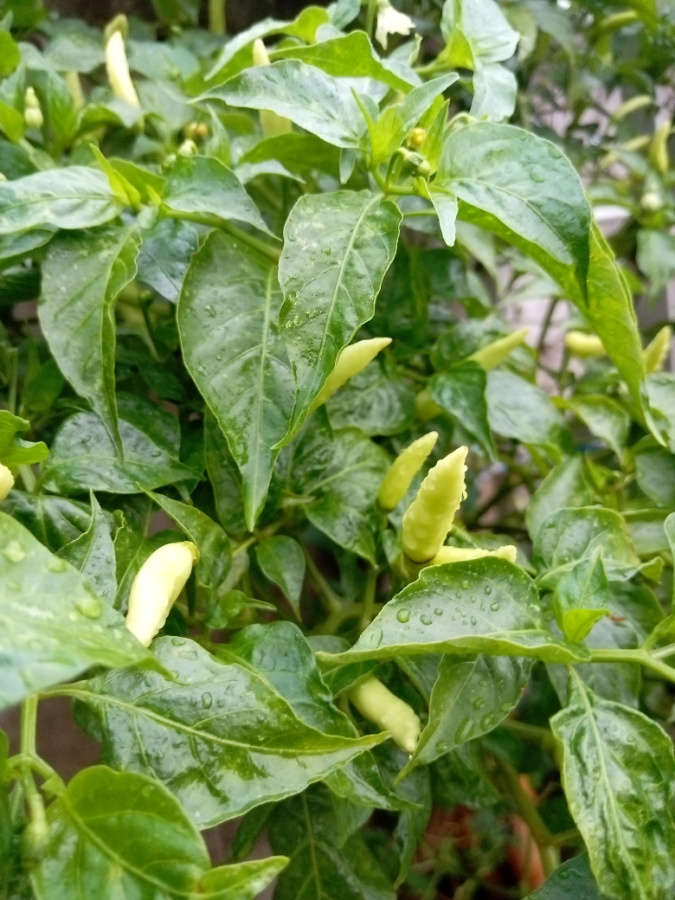Best Fertilizers for Peppers: Boost Growth and Taste Naturally
Best Fertilizers for Peppers: Boost Growth and Taste Naturally
Blog Article
Organic Vs. Synthetic Fertilizers: Which Is Best for Supporting Healthy Pepper Plants?
In the realm of supporting healthy and balanced pepper plants, the choice in between natural and synthetic fertilizers stands as an essential choice with significant ramifications. While both choices objective to give crucial nutrients to support plant growth, the subtleties of their influence on the dirt, plant health, and the environment spark a debate that mirrors throughout the horticulture community. Understanding the distinctive benefits and prospective mistakes of each fertilizer kind is crucial for pepper cultivators looking for to optimize their returns while maintaining an eco-conscious and sustainable strategy.
Advantages of Organic Plant Foods
Organic fertilizers offer an environmentally-friendly and sustainable strategy to nourishing pepper plants, supplying important nutrients without using artificial chemicals. These all-natural fertilizers are derived from natural resources such as garden compost, manure, bone dish, and algae, advertising soil health and wellness and biodiversity. Unlike artificial plant foods, natural choices release nutrients slowly, making sure a stable and balanced supply for pepper plants to flourish.
One considerable benefit of natural fertilizers is their capacity to boost dirt structure and water retention. By boosting dirt wellness, natural plant foods promote beneficial microbial activity, which assists in nutrient uptake by pepper plants. In addition, natural fertilizers reduce the risk of chemical run-off, protecting water sources from contamination and securing the setting.
In addition, natural fertilizers add to long-lasting dirt fertility by advertising the growth of valuable soil microorganisms. These microorganisms aid break down raw material, releasing nutrients in a type that is easily accessible to pepper plants. best fertilizers for peppers. By cultivating a healthy and balanced soil ecological community, organic fertilizers sustain sustainable pepper farming techniques that benefit both plants and the atmosphere
Drawbacks of Artificial Plant Foods
Synthetic fertilizers, in contrast to their organic equivalents, position various drawbacks when used to nourish pepper plants, influencing both plant health and wellness and ecological sustainability. One significant disadvantage of synthetic plant foods is their propensity to seep nutrients from the soil quickly.
In addition, the overuse of synthetic fertilizers can add to water air pollution. Excess fertilizers not absorbed by plants can get rid of into water bodies, resulting in eutrophication, where algae blossoms deplete oxygen levels in the water, damaging aquatic life. Moreover, synthetic fertilizers are typically stemmed from non-renewable sources, such as fossil gas, contributing to carbon discharges and environmental deterioration throughout their production.
Nutrient Absorption Contrast
When contrasting natural and synthetic fertilizers in terms of nutrient absorption, organic fertilizers have the advantage of giving a much more balanced and slow-release resource of nutrients. Organic plant foods include a variety of macro and trace elements that are not just valuable for the plants yet additionally promote healthy soil microbial activity, which helps in nutrient uptake.
In addition, organic plant foods enhance dirt framework and water retention capability, allowing pepper plants to access nutrients a lot more successfully. This enhanced dirt quality assists in root development, making it possible for much better nutrient absorption. Synthetic plant foods, although initially boosting plant growth due to their high nutrient focus, may prevent long-lasting nutrient absorption by derogatory dirt health and wellness gradually.
Environmental Influence Considerations

On the other hand, artificial fertilizers, although often even more right away offered and concentrated to plants, can have harmful impacts on the setting otherwise applied appropriately (best fertilizers for peppers). Their manufacturing requires high energy inputs, resulting in greenhouse gas discharges and adding read more to climate change. The runoff of excess synthetic plant foods can infect water resources, leading to eutrophication and hurting water communities.
Finest Fertilizer Practices for Peppers
To achieve this, it is essential to comply with best plant food techniques customized to the certain requirements of pepper plants. One critical technique is to perform a dirt examination prior to applying any plant foods.
An additional essential method is to feed pepper plants at the correct time. Typically, peppers benefit from getting fertilizer at planting and afterwards once again when they start to blossom. Over-fertilizing can result in nutrient inequalities and harm the plants, so it is important to comply with recommended application rates.
Additionally, choosing a well balanced plant food with an NPK proportion that matches pepper plants' needs is essential. Organic plant foods, such as garden compost or manure, can be excellent choices see here now as they launch nutrients slowly and improve dirt structure in time. However, artificial plant foods can give a quick nutrient boost when required. Inevitably, incorporating synthetic and natural fertilizers deliberately can aid nurture healthy pepper plants while reducing environmental impact.
Conclusion

Organic fertilizers supply a sustainable and environmentally-friendly method to nourishing pepper plants, providing vital nutrients without the use of synthetic chemicals. Unlike artificial fertilizers, organic options release nutrients gradually, ensuring a steady and balanced supply for pepper plants to flourish.
Artificial fertilizers, in comparison to their natural equivalents, pose numerous negative aspects when utilized to nurture pepper plants, influencing both plant health and wellness and ecological sustainability. you could look here When comparing artificial and natural plant foods in terms of nutrient absorption, natural fertilizers have the benefit of providing a much more balanced and slow-release resource of nutrients.Additionally, natural plant foods enhance dirt structure and water retention capacity, permitting pepper plants to access nutrients more successfully.
Report this page